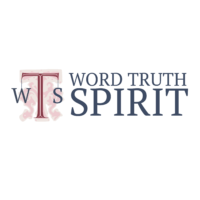Some of the texts defended by King James Only advocates against modern versions also support Pentecostal beliefs. It is therefore inconsistent to employ these passages in defense of the King James Bible, while at the same time denying their plain Pentecostal implications.
The Word of Truth & The Spirit of Truth
The Dean Burgon Society is the publisher of the book, The Last Twelve Verses of Mark, by Dean John William Burgon. Here is an exerpt from the Dean Burgon Society’s Statement of Faith: “We believe that the so-called ‘sign gifts’ of the Holy Spirit (such as tongues, prophecy, knowledge, etc.) ceased with the completion of the New Testament canon around 90 or 100 A.D. and are not present today.”
This is a striking case in point, although it is only a representative one. While being staunch defenders for the textual authenticity of the last twelve verses of Mark’s Gospel regarding the Bible version issue on the one hand, the Dean Burgon Society then denies the content of those very verses as having any real application for today’s reader on the other hand!
Those verses state, “And these signs shall follow them that believe; In my name shall they cast out devils; they shall speak with new tongues; They shall take up serpents; and if they drink any deadly thing, it shall not hurt them; they shall lay hands on the sick, and they shall recover.” (Mark 16:17-18).
What exactly are these signs which Jesus himself promised, “shall follow them that believe,” if they are not what the rest of the New Testament refers to as, “spiritual gifts,” (<a href=”#” class=”bible-reference”>1 Corinthians 12:1</a>) such as “divers kinds of tongues,” “prophecy,” and, “the word of knowledge” (1 Corinthians 12:10 d, b; 1 Corinthians 12:8 b) which, “…are for a sign…” (1 Corinthians 14:22)?
The Dean Burgon Society has done away with the only biblically consistent answer to this question. Observe also that the DBS does not pinpoint the exact time the gifts ceased, but only that they, “ceased with the completion of the New Testament canon around 90 or 100 A.D.”
This is not to single out this ministry because I applaud their labours and research in informing and edifying believers about the reliability of the true scriptural texts and warning the churches against false ones. We need more such standard-bearers throughout Christendom who are willing to hold the line against corrupt “bible” versions.
But theirs is by no means the only ministry that takes such an inconsistent stance. Many, many churches, denominations, Bible colleges, and seminaries, and even entire segments of the conservative Christian community affirm this doublespeak.
But there is a way back towards consistency.
“And I sought for a man among them, that should make up the hedge, and stand in the gap before me…” (Ezekiel 22:30 a-c)
Word Truth Spirit is here to stand in the gap between Spirit-filled believers on the one side, and Bible-believing disciples on the other.
Yes, ideally, each of us should strive to be both, but for far too long, these two segments of Christendom have had very little to do with the other side, and have often viewed the other with suspicion of heresy.
Scripture commands unity within the bounds of the truth of the Bible.
Unity is commanded in the Scriptures (1 Corinthians 1:10, 1 Corinthians 10:17, Philippians 1:27).
This unity comes on the Word side as we are set apart from the world and become more like Christ (John 17:14-16). By the Word, we are sanctified and cleansed (Ephesians 5:26). In this way, we, “Which in time past were not a people,… are now the people of God.” (1 Peter 2:10 a).
On the Spirit side, this unity is maintained as each individual continues, “Endeavouring to keep the unity of the Spirit in the bond of peace” (Ephesians 4:3; see also 1Corinthians 12:13-26).
But there is also no place here for the compromise of ecumenical associations. It is the truth through which we are sanctified (John 17:17,19), and any unity which comes at the cost of truth is a false one.
So, while genuine unity centered on the truth is commanded, certain circumstances require separation as well.
We are ordered to divide ourselves from brethren which live unholy lives. “Wherefore come out from among them, and be ye separate, saith the Lord, and touch not the unclean thing; and I will receive you,” (2 Corinthians 6:17).
We are to separate from those who in their false teaching draw away disciples after them. “Now I beseech you, brethren, mark them which cause divisions and offences contrary to the doctrine which ye have learned; and avoid them.” (Romans 16:17) See also Acts 20:29-30.
We are to withdraw ourselves from those who, among other characteristics, “…consent not to wholesome words, even the words of our Lord Jesus Christ, and to the doctrine which is according to godliness;” (1 Timothy 6:3).
Jesus also warned against the doctrine of the Pharisees and Sadducees, who, in their self-righteous pride, were convinced they were living according to the letter of the law, and yet accused even Jesus himself of being a satan-worshipper. In the process, they blasphemed the Holy Ghost and His power (see Matthew 12:24-32; Matthew 16:6,12; 2 Timothy 3:5).
Word Truth Spirit believes the lines of separation must be defined and redrawn in accordance with scriptural truth. In line with the aforementioned exhortations both to unity and to division, we must all strive for consistency.
